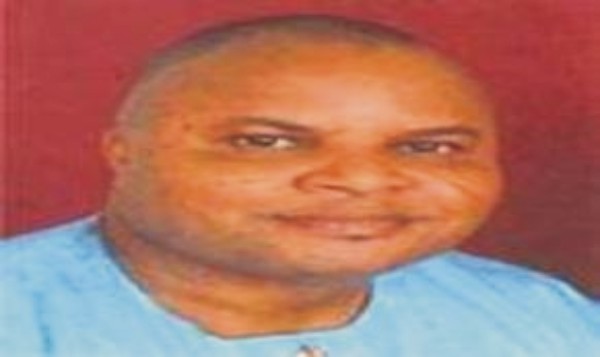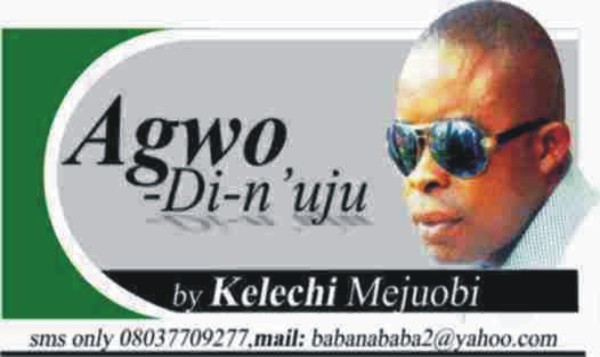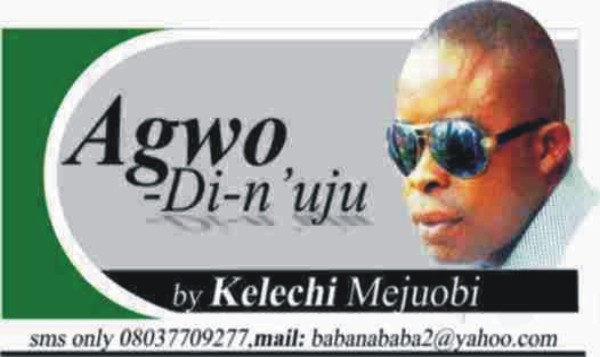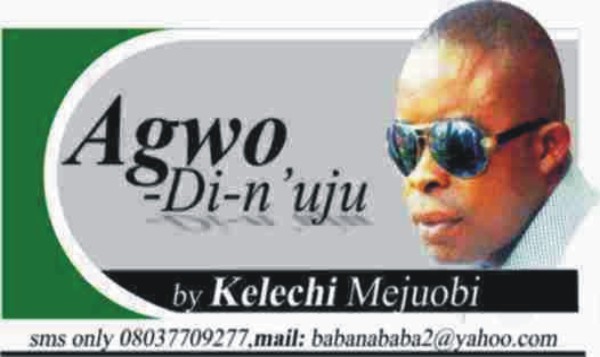
by Sir Roy Iwuala 07039096666
Unarguably, the issue of supplementary election after an inconclusive governorship election is hot off the press since 2011. Generally, many people are restive, expressing a murmur of disapproval about the place of the supplementary election in the Electoral Act. Sadly, the court seems to drag its feet on this vexed issue that has turned out as a fight for justice and democracy. Regrettably, the key question of the legality or validity of the supplementary election remains unanswered. Thus, the supplementary question arises as to whether or not the supplementary election is the perfect answer to an inconclusive governorship election. Expectedly, there is urgent and obvious need for an early resolution of the vexed question of supplementary election in our body politic.
However, the supplementary election became a thorny issue in the Nigerian politics following the inconclusive governorship election in Imo state on April 26, 2011. Indeed, this matter has become the latest in a spate of misrepresentation leading to wrong impression about the Independent National Electoral Commission (INEC), the principles of democracy, and whatnot. And, for this, the INEC has had a bad press in the recent past.
In the bid to delve in some depth on this topical issue, it is pertinent to state that I am not a legal practitioner. I am not even a professional journalist. Also, I am not a media consultant to anyone. I am merely a writer. I write with an inner compulsion to make my readers to reflect or ponder on pertinent issues in hand. I write to prick the conscience of people.
Therefore, I am of the conviction that whatever is stated in the Electoral Act is what should guide our policies and actions concerning elections. It is like what the Supreme Court once averred thus, “It is settled in law that the time fixed by the constitution for doing anything cannot be extended. It is immutable, fixed like the rock of Gibralter. It cannot be elongated, expanded, or stretched beyond what is stated.” In a circumstance as this, Mike Adenuga (Jnr) said, “Our words are the ties that weave us together, let us celebrate them.”
In fact, since the emergence of the fledgling democracy in Nigeria in 1999, I have witnessed the conduct of such elections as rerun, run-off, and by-election. The specific examples abound. I will start from the by-election. Firstly, when Chief Morris Ibekwe of the Peoples Democratic Party (PDP) that represented Okigwe North federal constituency died in 2004, a by-election was subsequently conducted by INEC. Indeed, Hon Mike Ohia of PDP won the by-election, and served for the remaining period of the tenure, which elapsed in 2007. Secondly, when Senator Amah Iwuagwu of PDP that represented Imo East (or Owerri) senatorial zone died in 2005, a by-election was, also held in which Chief Eze Ajoku of PDP clinched the victory. Senator Ajoku whose head was noticeably adorned with graying hair served for the remaining period of the tenure that elapsed in 2007.
An example of rerun may suffice. A typical example is the case of Hon Nnanna Igbokwe of PDP who was declared the winner of the Ahiazu Mbaise/Ezinihitte Mbaise federal constituency election in April 2011. In 2012, the election was invalidated by the court. An order was given to INEC for a rerun. INEC conducted the rerun in which Hon Igbokwe was still returned.
Yet, another example, which is on run-off, may suffice. There was a situation of inconclusive election in April 2011 concerning the Okigwe North federal constituency. Consequently, INEC conducted a run-off in May 2011 in specified areas of Ugiri clan in Isiala Mbano LGA. Finally, Hon Matthew Omegara of the then Action Congress of Nigeria (ACN) was declared the winner of the conclusive results of the said April and May 2011 elections.
Truly, I have not heard or seen a situation where a candidate for election or a political party or even a third/interested party challenged the INEC for conducting rerun, run-off, or by-election in those aforementioned circumstances. Thus, I reassured myself that such subsequent or make up elections are clear and unambiguous in the constitution. As Jonathan Swift pointed out thus, “Proper words in proper places, make the true definition of style.” This political development in defining when to hold rerun, run-off, by-election, etc go a long way to show our level of political growth and maturity.
However, the foregoing circumstances are quite different when one considers the position of INEC as a conjuror of supplementary election, which the Commission adopted as a panacea for inconclusive governorship election. Methinks that the supplementary election is a conjuring trick used as electoral magic words. In simple parlance, the catchphrase, “supplementary election” means an additional election to improve or complete an earlier election. It is like a run-off both in principle and practice. In view of this, it is pertinent to re-echo the supplementary question here. Thus, is the supplementary election, which is synonymous with run-off, the likely unconstitutional panacea to an inconclusive governorship election?
The foregoing question brings to the fore the governorship election in Anambra state, which was held on Saturday November 16, 2013 that was declared as inconclusive by the INEC just as in the case of Imo governorship election on Saturday April 26, 2011. In the wisdom of the INEC, the quagmire in the Anambra governorship election necessitated another supplementary election, which was held on Saturday November 30, 2013. While the court is yet to deliver its verdict on the validity or otherwise of the supplementary election held in Imo state on Saturday May 6, 2011, many people have questioned the rationale behind another supplementary election, albeit contentious, in Anambra state. There is no doubt that it has caused quite a stir.
There seems to be a popular opinion on the illegality or inappropriateness of the supplementary election as a perfect antidote to an inconclusive governorship election. On account of this, the National Publicity Secretary of the All Progressives Congress (APC), Alhaji Lai Muhammad in a press briefing relayed on Thursday November 28, 2013 by the Federal Radio Corporation of Nigeria (FRCN) during the 4.00pm national news said thus, “Our party, the APC will not participate in the Anambra supplementary election because it is illegal, and has no place in the Electoral Act.” Accordingly, it was reported that the governorship candidate of APC, Senator Chris Ngige did not participate in the said Anambra state supplementary election. Also, the Director-General of Ngige Campaign Organization, Chief George Moghalu berated the INEC in his reaction to the declaration of Chief Willie Obiano of the All Progressives Grand Alliance (APGA) as the winner of the conclusive results of the Anambra governorship election. The George Moghalu’s reaction attracted wide press coverage as was shown on Channels Television of Sunday December 1, 2013. In this situation, Lillian Hellman said, “Cynicism is an unpleasant way of saying the truth.”
At this juncture, it is important to ascertain what may have informed the decision of the INEC to undertake or conduct supplementary election (in a case of inconclusive governorship election) when it is not provided in the Electoral Act. In this vein, Ogadi S. Ogadi, Okoro J. Okoro, and Sam Onwuemedo seemed to believe that the INEC has an answer to the vexed question of supplementary election. In their publication in the Whitepaper edition of November 20-21, 2013 captioned “Supplementary election: like Imo, like Anambra” on the back page, the trio said, “… for INEC to have also chosen to go for supplementary election in Anambra state almost three years after the Imo case had happened should be an indication that the INEC did their homework, and the Commission has not seen any reason to discard that issue.” The trio lost the argument when they added that, “For the INEC lawyer to have supported in his brief those who had taken legal action challenging the same supplementary election conducted by INEC looks somehow.” It “looks somehow” because INEC may have considered the supplementary election as a form of escapism driven solution. In other words, it was mere political solution adopted out of sheer petty politics for that matter. This has caused serious consequences, which clearly points to the fact that such a political quagmire does not require a petty political solution adduced by INEC, but a clear-cut legal answer proffered by the court.
Significantly, it is instructive that the issue at stake is not necessarily about what informed the decision of the INEC on the choice of supplementary election, but what the Electoral Act stated clearly and firmly. And, whatever the Electoral Act stipulated on this contentious issue is, so to say, immutable and fixed like the Aso rock or Kukuruku hill. This is why most of the aggrieved parties headed to the court so that they cannot be denied the justice of their cause.
Presently, the PDP, which is the party in power at the federal level, is opposed to the supplementary election as can be seen from what is happening in the suit concerning Imo supplementary election. Also, the APC, which is the major opposition party, is opposed to the same issue of supplementary election too. It was loud and clear that APC boycotted the Anambra supplementary election. Interestingly, these serious challenges and sharp rebuff to the supplementary elections in Imo and Anambra states constitute the crux of the matter here. The question now is whose interest is the INEC serving in conducting what the majority of people believe and know is not in the Electoral Act? Is it not only when a plant and soil agree that the union can produce good fruits?
Nevertheless, what do we expect the INEC to have done in a circumstance when there is inconclusive governorship election? In other words, if the unconstitutional option of a supplementary election is not the right panacea, what is the alternative? In fact, the acid test of any political question is what is the alternative? Generally, the court is the final arbiter to determine the recipe for equity and justice on this matter. With so many ifs and buts in the matter, methinks that it is easier to wait and see what the Lordships will aver, assert, or declare as the way forward on this political logjam. As John 8:32 rightly said, “And, you will know the truth, and the truth will make you free.” Similarly, the ex-President of US, Abraham Lincoln added that, “I know there is God, and he hates injustice…. I am nothing, but truth is everything.”
However, one school of thought holds the view that the inconclusive election should be cancelled to pave way for a rerun. Assuming the election is cancelled, Governor Rochas Okorocha will not likely be re-nominated by APGA. Presently, he has been disowned by APGA following the withdrawal of the party from the ongoing suit on the Imo supplementary election.
On the other hand, if the governor decamps to run under another political party, it will be his doomiest or worst adventure. Presently, it is a common public knowledge that he is having a whirlwind romance with APC, a party, which is unacceptable in Igbo land unlike PDP and APGA. Therefore, it is palpably clear that “agwo no n’akirika” (there’s grave danger) for Governor Okorocha who should get ready with his bags and baggage for a journey to “Afghanistan” where the ex-Governor, Dr Ikedi Ohakim went and returned unscathed. By “Afghanistan,” I mean the Economic and Financial Crimes Commission (EFCC), and not the hilly country in the Asian continent under the heavy bombardment of the Talibans.
In conclusion, the vexed question of supplementary election has for the past three years risen to a big national challenge that calls for timely intervention. However, one is worried on why the court chose to drag its heels on a matter where one party has unduly reaped so much of the bounties under contention. Thus, the delay tactics occasioned by prolonged adjournments, time-wasting motions, and unnecessary appeal to higher court is unhealthy for our fledgling democracy. Therefore, this issue of patching, mending, scratching, and whitewashing cases that deserve fundamental treatment requires to be nipped in the bud. In fact, the court needs to demonstrate through its actions that illegality can never be condoned. In this New Year, the court should answer the vexed question of the supplementary election now or never. Unarguably, a stitch in time saves nine, just as justice delayed is justice denied, QED.








